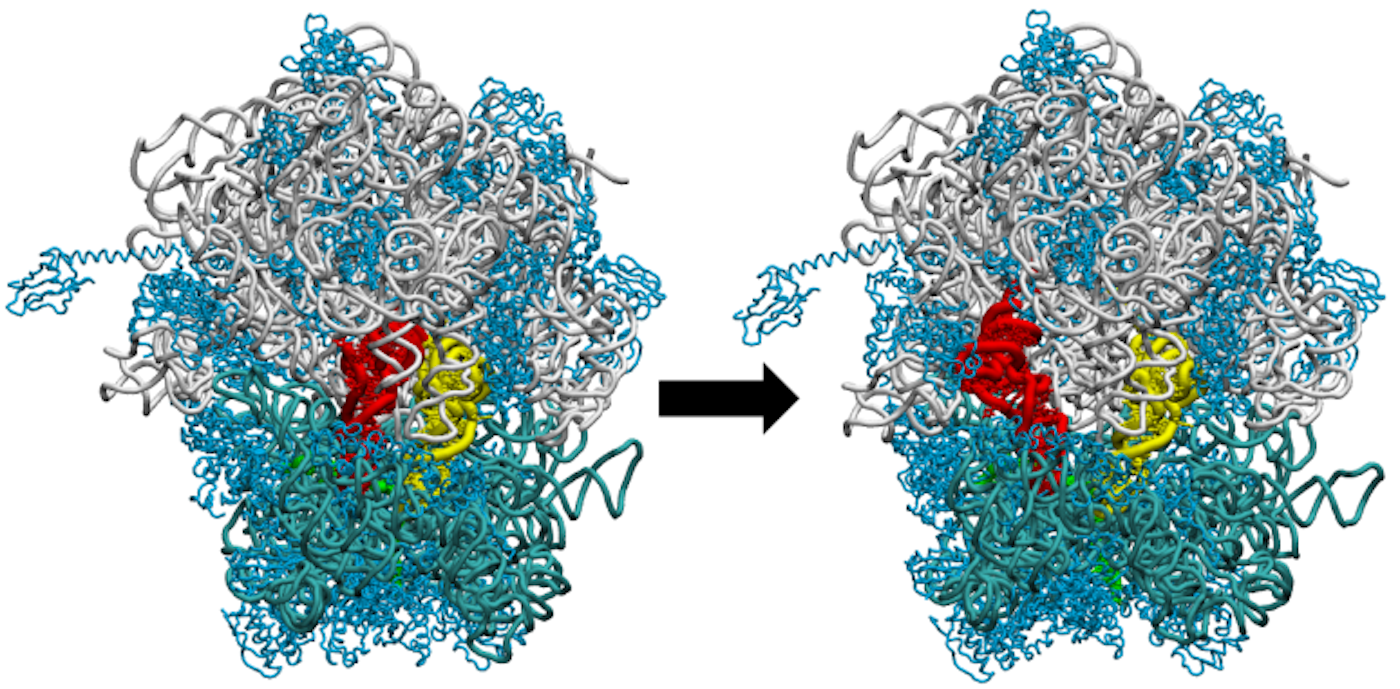
Professor Whitford’s research probes the energetic properties of biomolecular dynamics through a combination of theoretical modeling and high-performance computing (HPC). His investigations of biomolecular order-disorder transitions and energy transduction processes span from protein and ribonucleic acid folding, to large-scale conformational rearrangements in molecular machines. Since this work is at the interface of statistical mechanics, and areas of chemical and biological research, many investigations are performed in close collaboration with experimental researchers, which allows for quantitative comparisons of theoretical concepts and cellular dynamics.
The principal class of models that they use for simulating biomolecules are Structure-Based Models. Grounded by experimental observables, these models approximate the effective energy landscape of a molecule by a single (or a few) dominant basin of attraction. It is then possible to systematically analyze the response of the system to perturbations, which can mimic drug interactions, changes in cellular conditions, the formation of biomolecular interfaces and energy-releasing chemical steps. From this, they are identifying the essential energy landscape features that are responsible for biological function.
He also works closely with Universidade de São Paulo (USP), where he is actively involved in HPC efforts in Brazil. This includes the initiation of a jointly operated Blue Gene/P supercomputer (24,576 compute cores), in addition to scientific computing collaborations. These provide opportunities for NEU students to perform research in an international setting, both by hosting scientists and by conducting research abroad.


